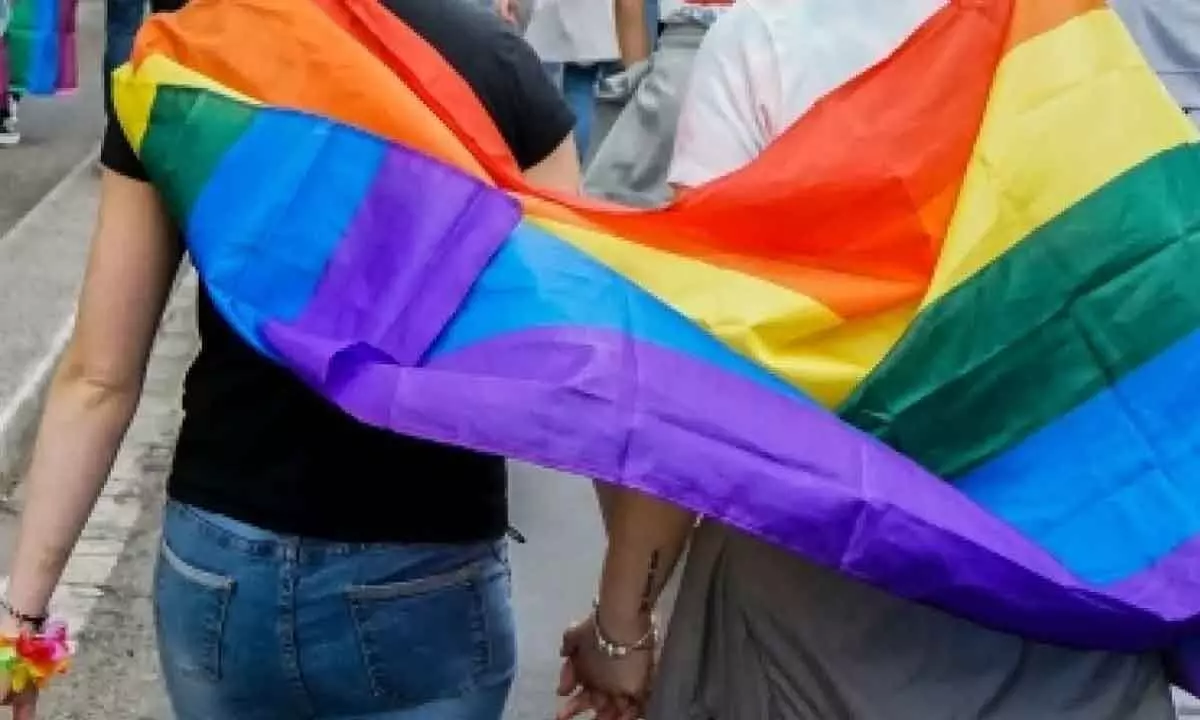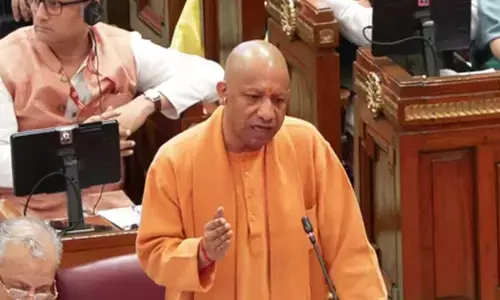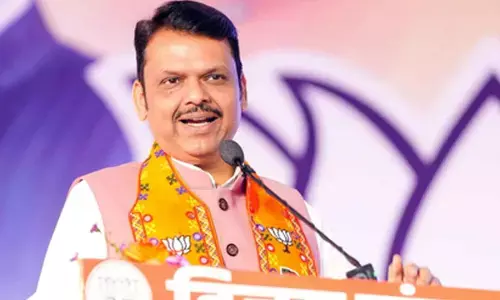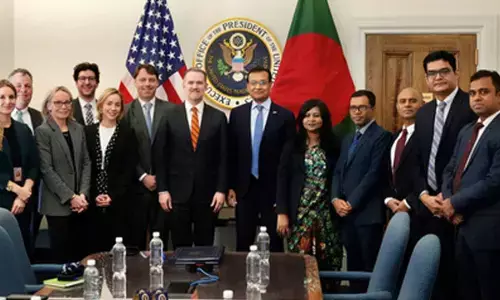Not in conformity with Indian ethos: Centre in SC on same-sex marriage

New Delhi: The central government has told the Supreme Court that living together as partners and having sexual relationship by same sex individuals, which is decriminalised now, is not comparable with the Indian family unit -- a husband, a wife, and children born out of the union -- while opposing pleas seeking recognition of same-sex marriage.
It stressed that same-sex marriage is not in conformity with societal morality and Indian ethos.
In an affidavit, the central government said the notion of marriage itself necessarily and inevitably presupposes a union between two persons of the opposite sex. This definition is socially, culturally, and legally ingrained into the very idea and concept of marriage and ought not to be disturbed or diluted by judicial interpretation, it added.
The affidavit said the institution of marriage and the family are important social institutions in India that provide for the security, support and companionship of the members of our society and bear an important role in the rearing of children and their mental and psychological upbringing also.
The Centre stressed that despite the decriminalization of Section 377 of the Indian Penal Code, the petitioners cannot claim a fundamental right for same-sex marriage to be recognised under the laws of the country.
The affidavit said that considerations of societal morality are relevant in considering the validity of the legislature and further, that it is for the legislature to judge and enforce such societal morality and public acceptance based upon Indian ethos.
The Centre said that marriage between a biological man and a biological woman takes place either under the personal laws or codified laws namely, the Hindu Marriage Act, 1955, the Christian Marriage Act, 1872, the Parsi Marriage and Divorce Act, 1936 or the Special Marriage Act, 1954 or the Foreign Marriage Act, 1969.
"It is submitted that the legislative understanding of marriage in the Indian statutory and personal law regime is very specific viz. marriage between a biological man and a biological woman only," it said.
The parties entering into marriage creates an institution having its own public significance as it is a social institution from which several rights and liabilities flow, it added.
"Seeking declaration for solemnisation/registration of marriage has more ramifications than simple legal recognition. Family issues are far beyond mere recognition and registration of marriage between persons belonging to the same gender.
Living together as partners and having sexual relationship by same sex individuals (which is decriminalised now) is not comparable with the Indian family unit concept of a husband, a wife and children which necessarily presuppose a biological man as a 'husband', a biological woman as a 'wife' and the children born out of the union between the two -- who are reared by the biological man as father and the biological woman as mother," said the affidavit.
The Centre's response came on a batch of petitions challenging certain provisions of the Hindu Marriage Act, Foreign Marriage Act and the Special Marriage Act and other marriage laws as unconstitutional on the ground that they deny same sex couples the right to marry or alternatively to read these provisions broadly so as to include same sex marriage.
The Centre said amongst Hindus, it is a sacrament, a holy union for performance of reciprocal duties between a man and a woman and in Muslims, it is a contract but again is envisaged only between a biological man and a biological woman. It will, therefore, not be permissible to pray for a writ of the apex court to change the entire legislative policy of the country deeply embedded in religious and societal norms, it added.
The Centre emphasized that in any society, conduct of the parties and their inter se relationship is always governed and circumscribed by personal laws, codified laws or in some cases even customary laws/religious laws. The jurisprudence of any nation, be it by way of codified law or otherwise, evolves based upon societal values, beliefs, cultural history and other factors and in case of issues concerned personal relationships like marriage, divorce, adoption,
maintenance, etc., either the codified law or the personal law occupies the field, it added.








